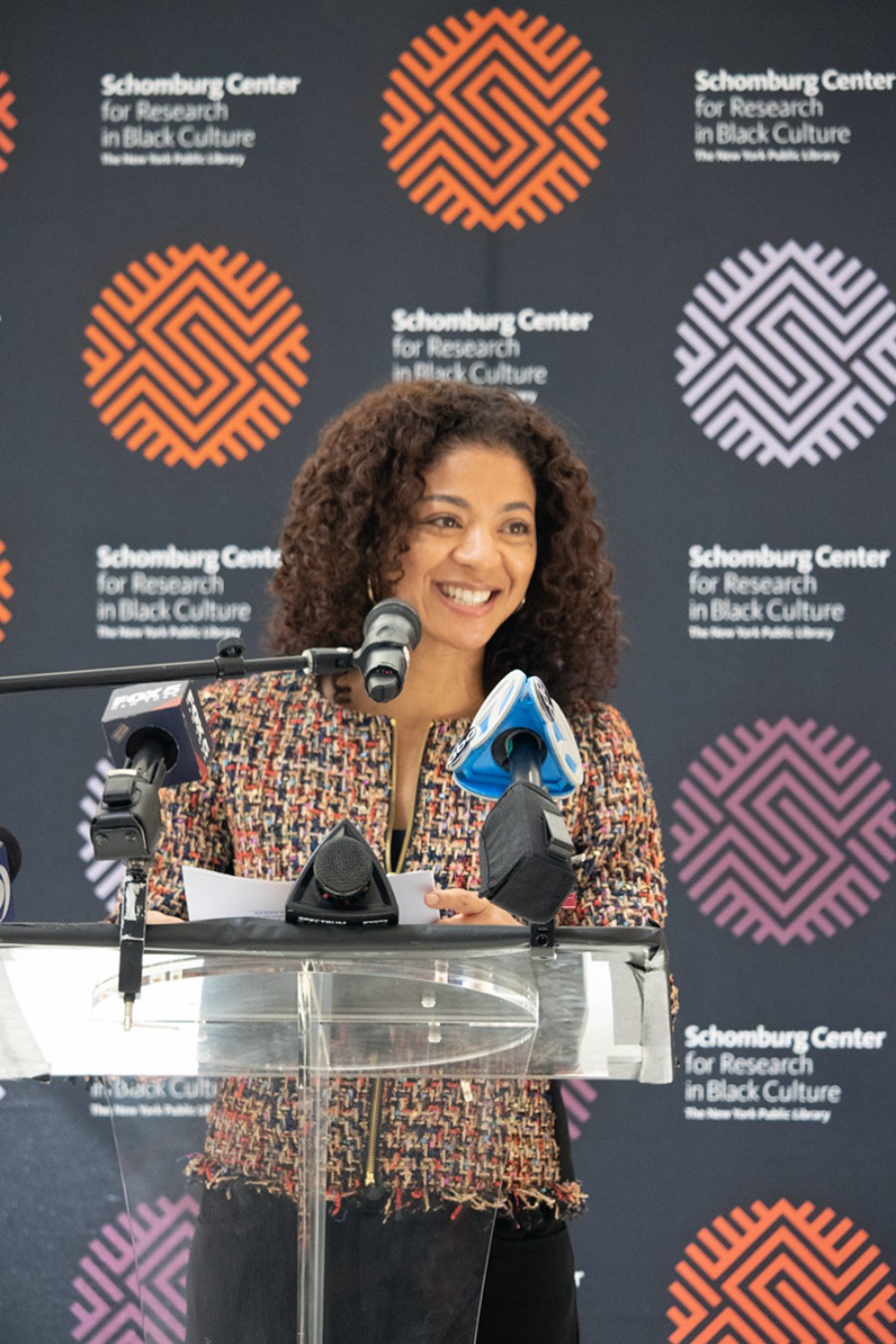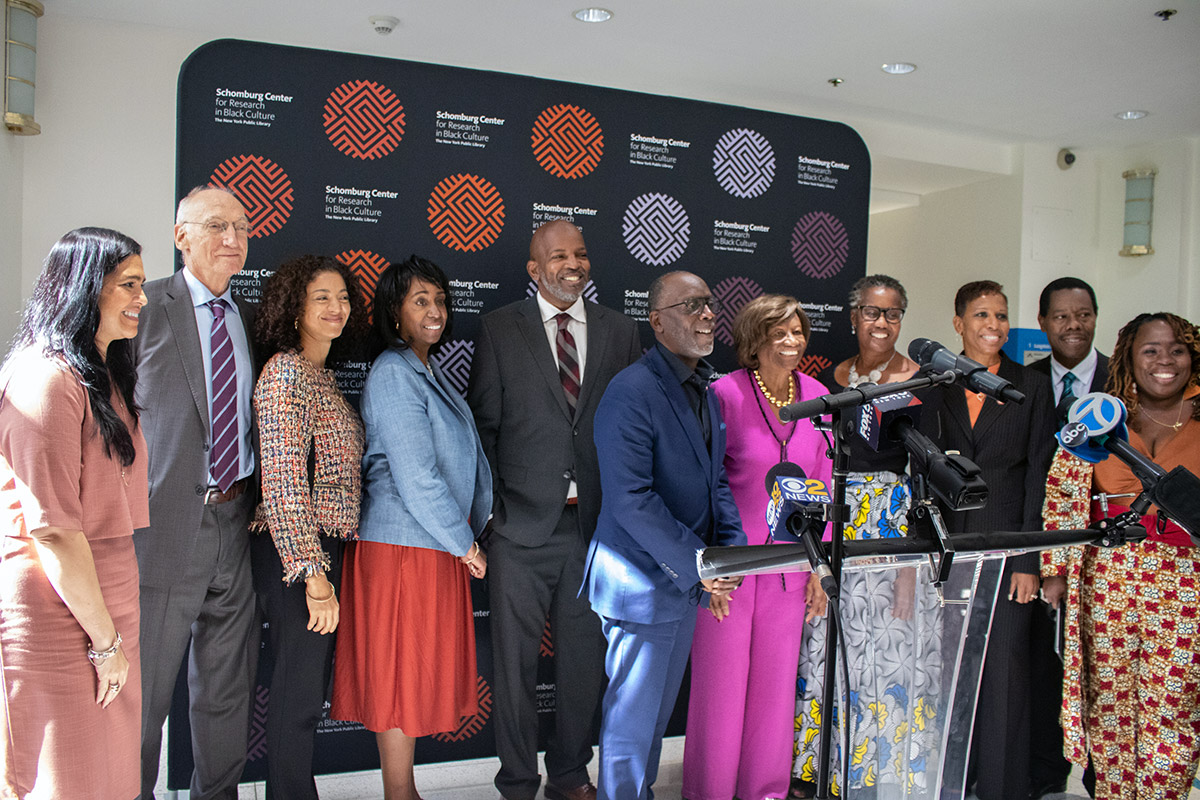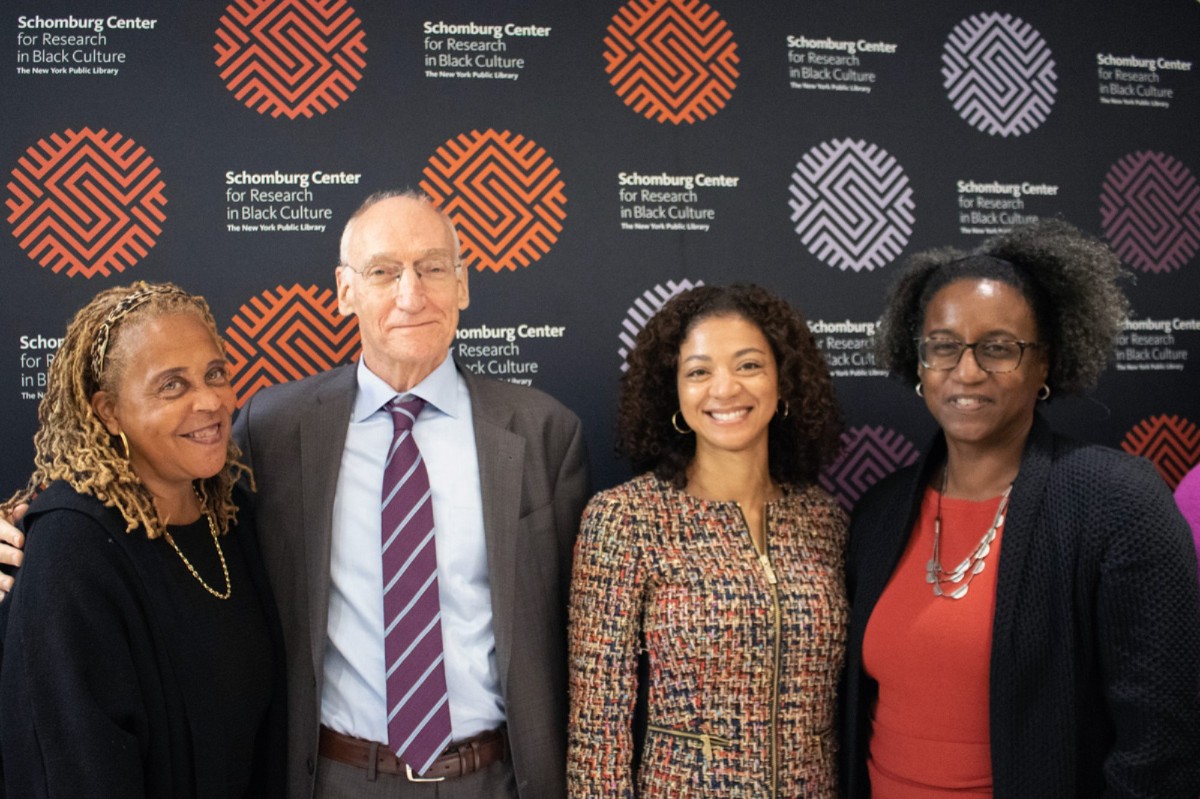As part of a landmark new initiative, the Black Education Research Collective (BERC) at Teachers College has received a $3.25 million, one-year grant from the New York City Council to develop an interdisciplinary K-12 Black studies curriculum for the city’s public schools. The funding is the largest single grant TC has ever received from the Council.
The project, called the Education Equity Action Plan (EEAP), formally launched on Wednesday, Sept. 29, at the Schomburg Center for Research in Black Culture, with leadership from the City Council and the Council’s Black, Latino, and Asian Caucus (BLAC); Teachers College and EEAP’s four other partner organizations; Department of Education Chancellor Meisha Porter; and other nonprofit and community leaders and activists, including: Hazel N. Dukes, President, NAACP State Conference; Arva Rice, President & CEO, New York Urban League; and Joy Bivins, Director of the Schomburg Center.
“Ending systemic racism in our society begins with education,” President Thomas Bailey said. “The Education Equity Action Plan will create an essential new paradigm of Black studies for New York City public school students. Teachers College is honored by the opportunity to apply our deep expertise in culturally relevant education research, curriculum development, pedagogy, and evaluation to this landmark new initiative through leadership from the Black Education Research Collective (BERC). We are proud to work with our partner organizations, who stand at the forefront of the fight for racial equity.”
The City Council will distribute a total of $10 million to partner organizations working on the pilot program. BERC’s collaborators on the project include United Way of NYC; the Eagle Academy Foundation; Association of Black Educators of New York; and Black Edfluencers.
The grant follows BERC’s recent research report, Black Education in the Wake of COVID-19 & Systemic Racism, led by its Director and TC Professor of Education Leadership Sonya Douglass Horsford, which measured the impact of the pandemic and systemic racism on Black students.

Sonya Douglass Horsford, Ed.D., Professor of Education Leadership, and Director of the Black Education Research Collective at Teachers College, Columbia University (Photo: Steve Mau)
“BERC is grateful to the NYC City Council for its tremendous support and the opportunity to play an integral role in this historic initiative,” said Horsford. “We look forward to bridging research and practice through collaboration with the New York Department of Education and community partners to develop an interdisciplinary Black studies curriculum that will improve the quality of education provided to all students.”
In developing the new curriculum, BERC will be building on the study’s findings that Black Americans’ trust in schools and other public institutions has been significantly eroded by governmental and institutional responses to the coronavirus; police brutality; anti-Black violence; and uprisings like the January 6 insurrection at the U.S. Capitol. Featured in The New York Times, the report also offers policy recommendations for racial equity — and lays the groundwork for additional civic action to support Black students.
The pilot program will introduce K-12 students to topics exploring early African civilizations, the continuum of the Black experience in America, the contributions and accomplishments of peoples of the African diaspora as well as the impact of systemic and institutional racism on all members of society.
Horsford and BERC colleagues will conduct extensive research as part of the curriculum design and development, working closely with the New York City Department of Education, and community partners and leaders. The interdisciplinary project will also task BERC with the creation of professional development materials for educators to complement the curriculum as well as a key role in the project’s evaluation.

HISTORY IN THE MAKING Education Equity Action Plan partners and champions celebrated the project’s launch with community leaders and activists. Pictured (left to right): Marielys Divanne, VP of Education, United Way of New York City; TC President Thomas Bailey; Sonya Douglass Horsford, Director of BERC and Professor of Education Leadership; Adrian Straker, President-elect, Association of Black Educators of New York; Dr. Shango Blake, President, Black Edfluencers-United (BE-U); Daneek Miller, City Council Member and Black, Latino and Asian Caucus (BLAC) Co-Chair; Hazel N. Dukes, President, NAACP New York State Conference; Arva Rice, President & CEO, New York Urban League; Adrienne Adams, City Council Member and BLAC Co-Chair; City Council and BLAC Member Mathieu Eugene; and Jawana M. Johnson, Chief Achievement Officer, Eagle Academy Foundation. (Photo: Steve Mau)
President Bailey noted that BERC’s research, and the EEAP initiative, “build on Teachers College’s long and proud history of adapting pedagogy and curricula to serve different learners and illuminate their experiences in our society.”
“Teachers College faculty, students and alumni are actively engaged in supporting culturally relevant and sustaining approaches to education throughout the New York City Department of Education,” added TC Provost, Dean and Vice President for Academic Affairs Stephanie Rowley. “The groundbreaking Education Equity Action Plan sets the stage to strengthen and expand that work through an inspired new Black studies curriculum, bringing together valuable partners across sectors, and engaging families and communities in ways that will support their children’s education.”
As part of the pilot effort, the curriculum will be implemented in a select number of New York City public schools between the first and second quarter of 2022.
